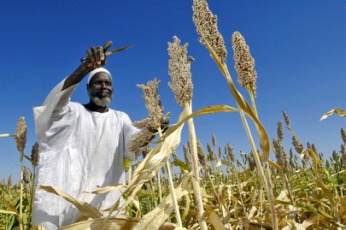Jonglei government urges local farmers to return to cultivate land
May 12, 14 (BOR) – The Jonglei state government of Jonglei has urged local individual and farmers’ groups to begin preparing their fields for this year’s agricultural season, which started earlier this month.

Addressing the Media in the capital, Bor, Jonglei’s minister of information, Jody Jonglei Boyoris, said limited funding would be available from the state government to help farmers cultivate their land.
Jonglei was the scene of brutal fighting after violence in the nation’s capital spread to other areas, with much of Bor destroyed and about 100,000 people fleeing across the Nile to Mingkaman in neighbouring Lakes state.
“We are urging our farmers to return home from Mingkaman and other places where they went to come back home and cultivate, the government is ready to support them”, said Boyoris.
More than three-quarters of Jonglei’s population rely on agriculture for their livelihoods, but with thousands across the state currently displaced there are fears the state could be engulfed by widespread hunger if crops are not planted this season.
Sources in Twic East, Pibor and Pochalla counties living in Bor town told Sudan Tribune that most residents in those regions had resumed farming activities earlier this month and were now waiting to plant seeds.
Planting is also underway in Fangak, Ayod, Uror, Akobo, and Duk counties.
However, there has been little preparation in the payams (districts) surrounding Bor county, where fears of further attacks and instability remain high.
International aid agencies are calling on parties to the conflict to observe 30 days of non-violence during the month of May to enable people to move freely so that they can tend to their crops and livestock.
In a press release issued last month, the UN Office for the Coordination of Humanitarian Affairs (OCHA) said a month of tranquillity would have an immediate impact on the livelihoods of millions of South Sudanese people as it would allow people to take advantage of the remaining crop planting period to ensure a harvest at the end of 2014.
The conflict in South Sudan has left at least 3.7 million people at risk of food insecurity.
As famine looms, aid agencies have issued a stark warning that the country is facing a potential humanitarian catastrophe.
(ST)
